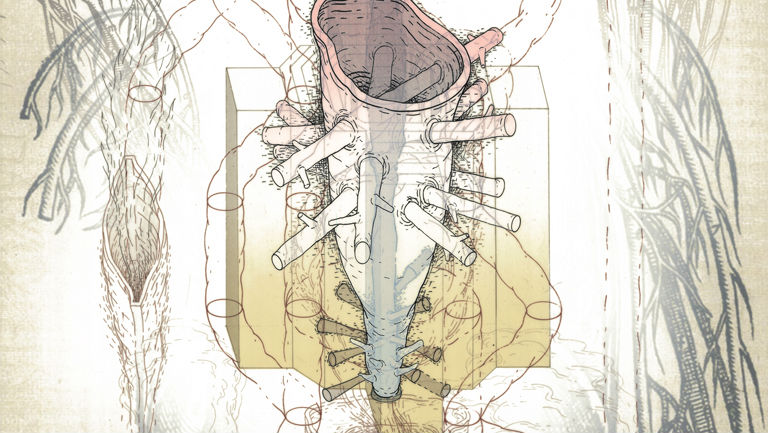
Biobanks are going to great lengths to gather human tissues, but there are still questions over whether the consent process is adequate.
(Sean Caulfield *Virus #2*, silkscreen and digital on drafting film and paper, 24)
The international health community has seen a lot of progress in the collection and storage of health data and tissue samples, but there is still work to be done regarding consent and ownership rights. Health law researchers say that current biorepository structures such as UK Biobank and the US Precision Medicine Initiative, which have been proliferating over the past decade, don’t have the proper policy required to support them. Authors point out the existing disagreements about best ways to obtain consent, as well as the extent of ownership rights of participants over donated samples and health information.
Authors:
Timothy Caulfield , Blake Murdoch
Corresponding author:
Timothy Caulfield, University of Alberta, Edmonton, AB, Email: caulfield@ualberta.ca
Original paper published in PLOS Biology on July 25, 2017.
